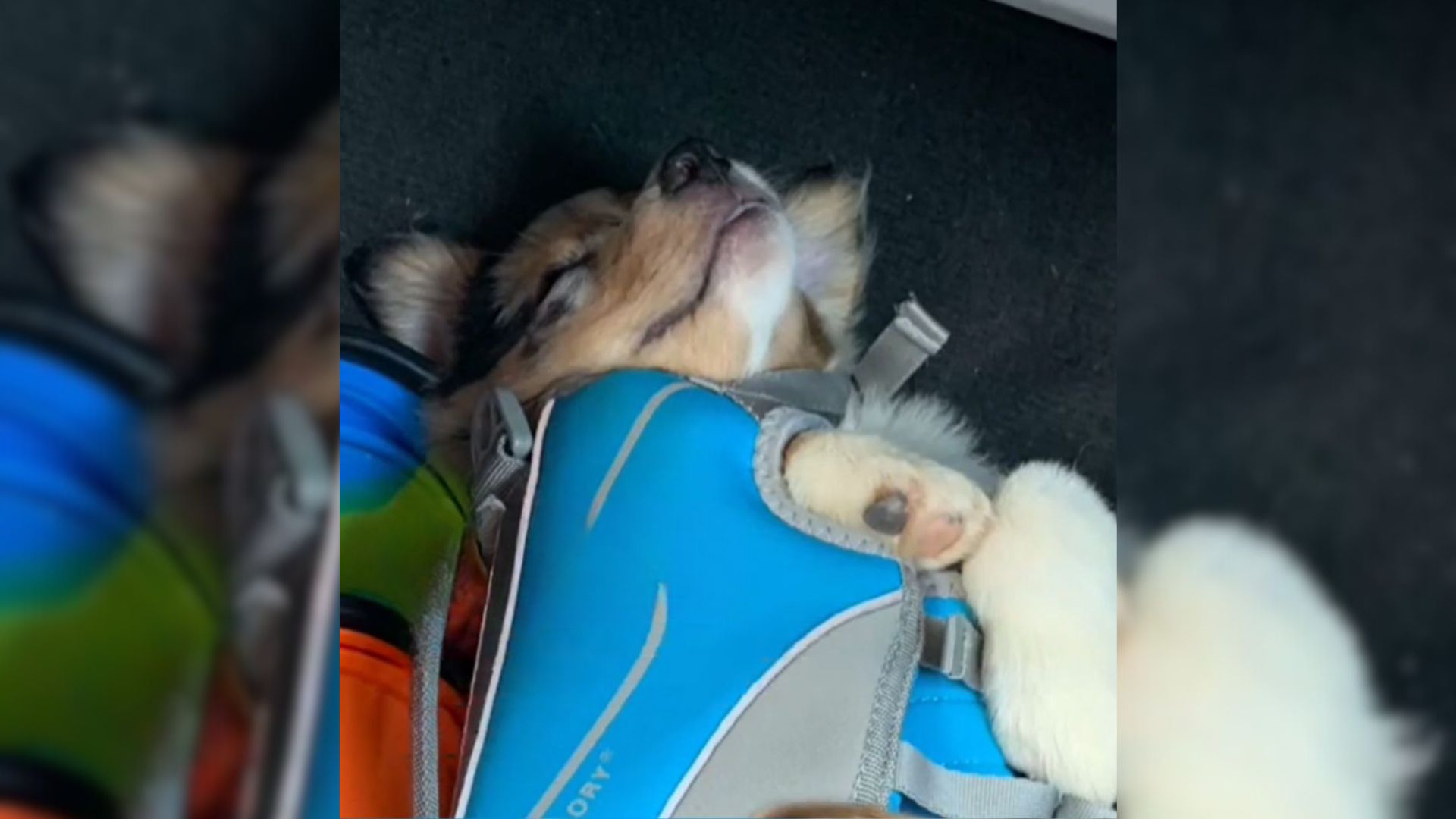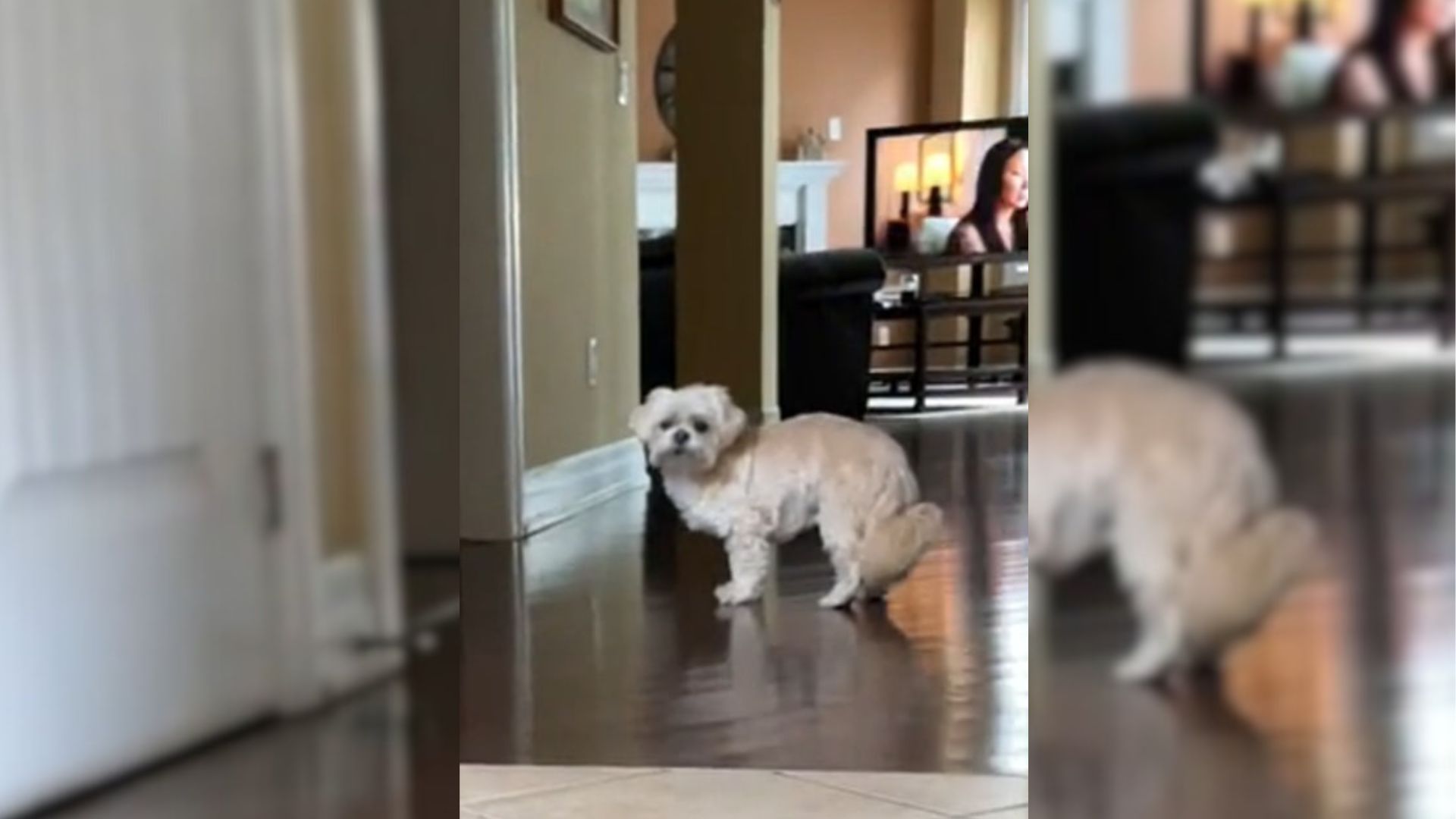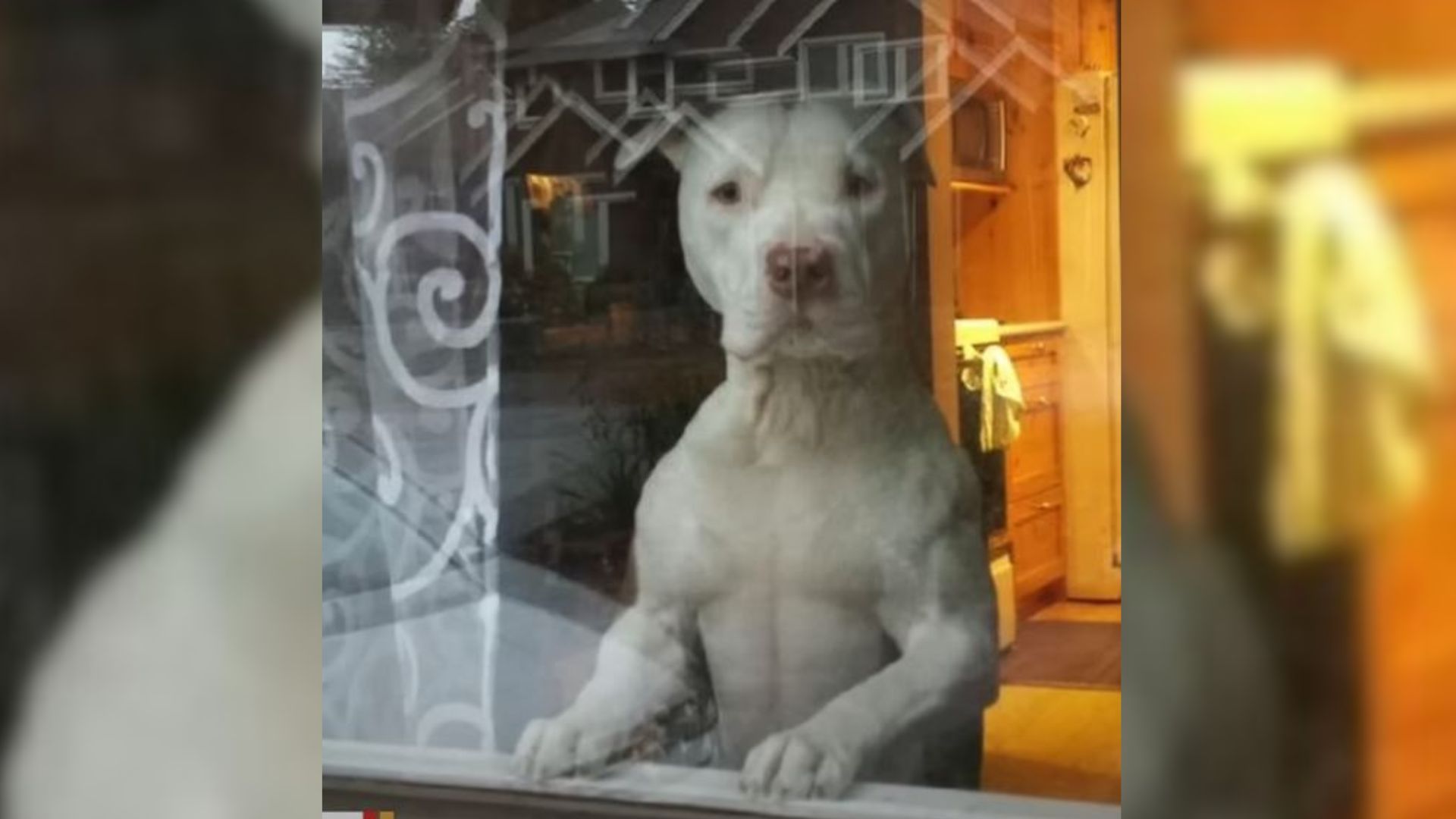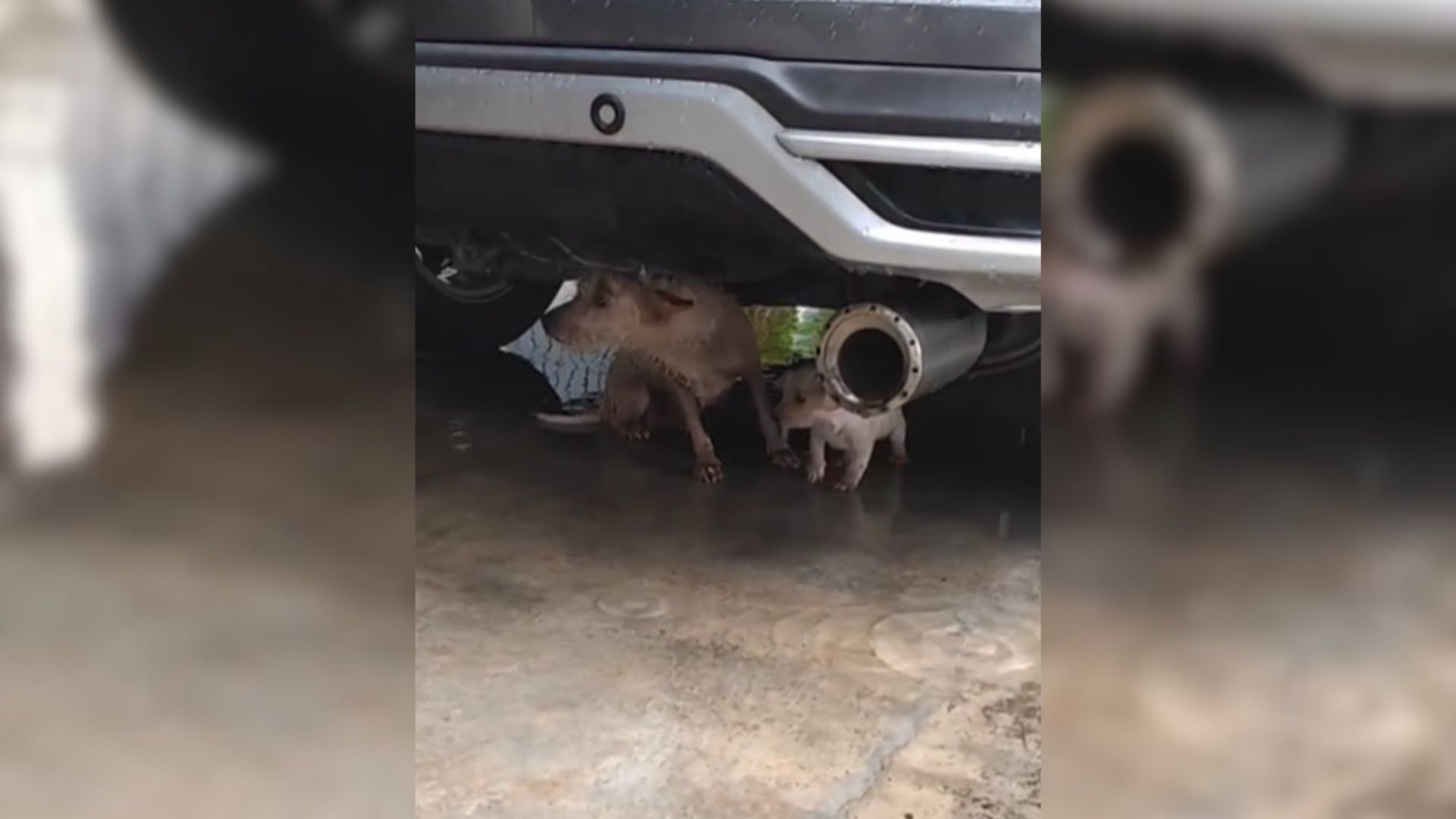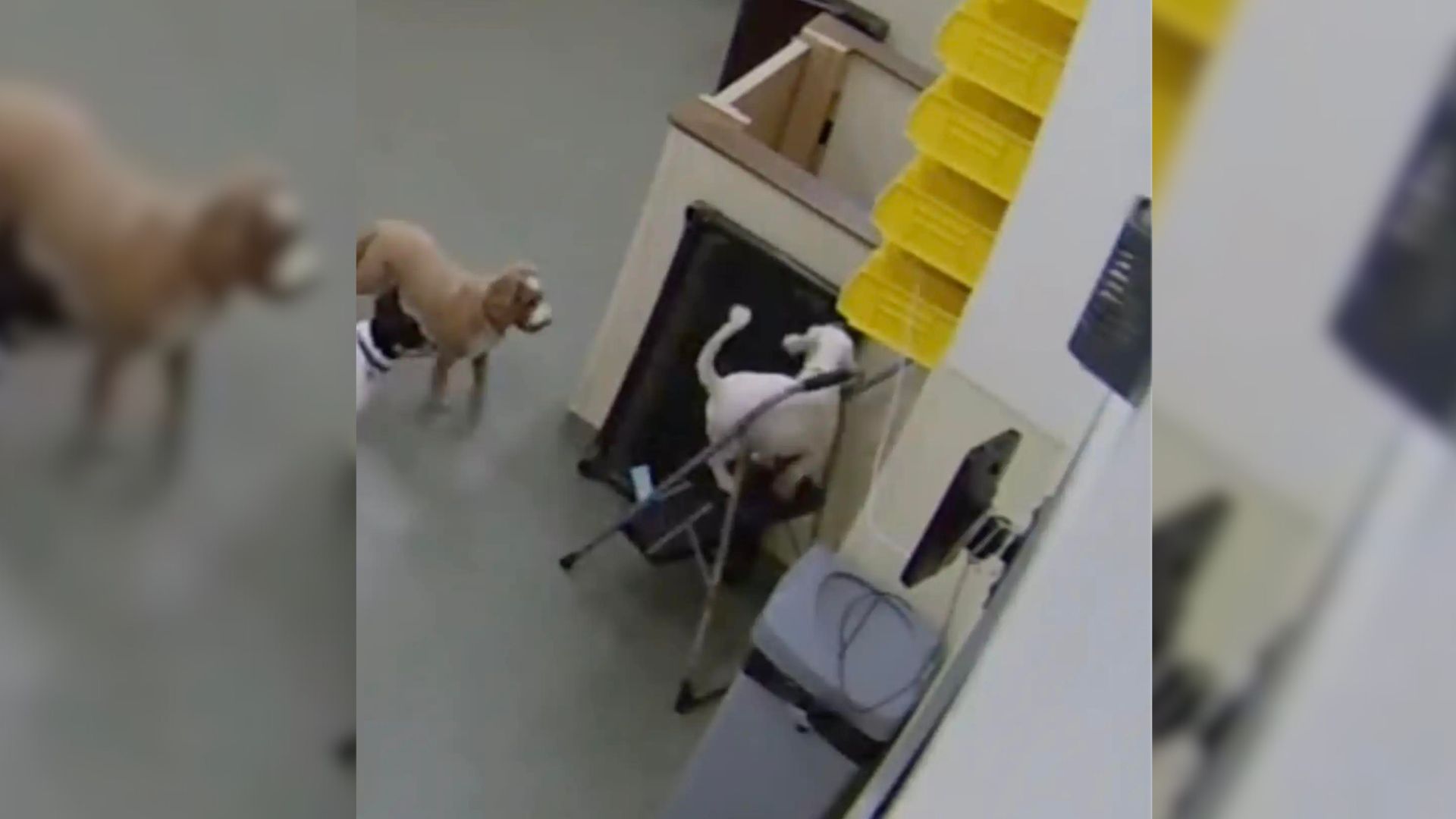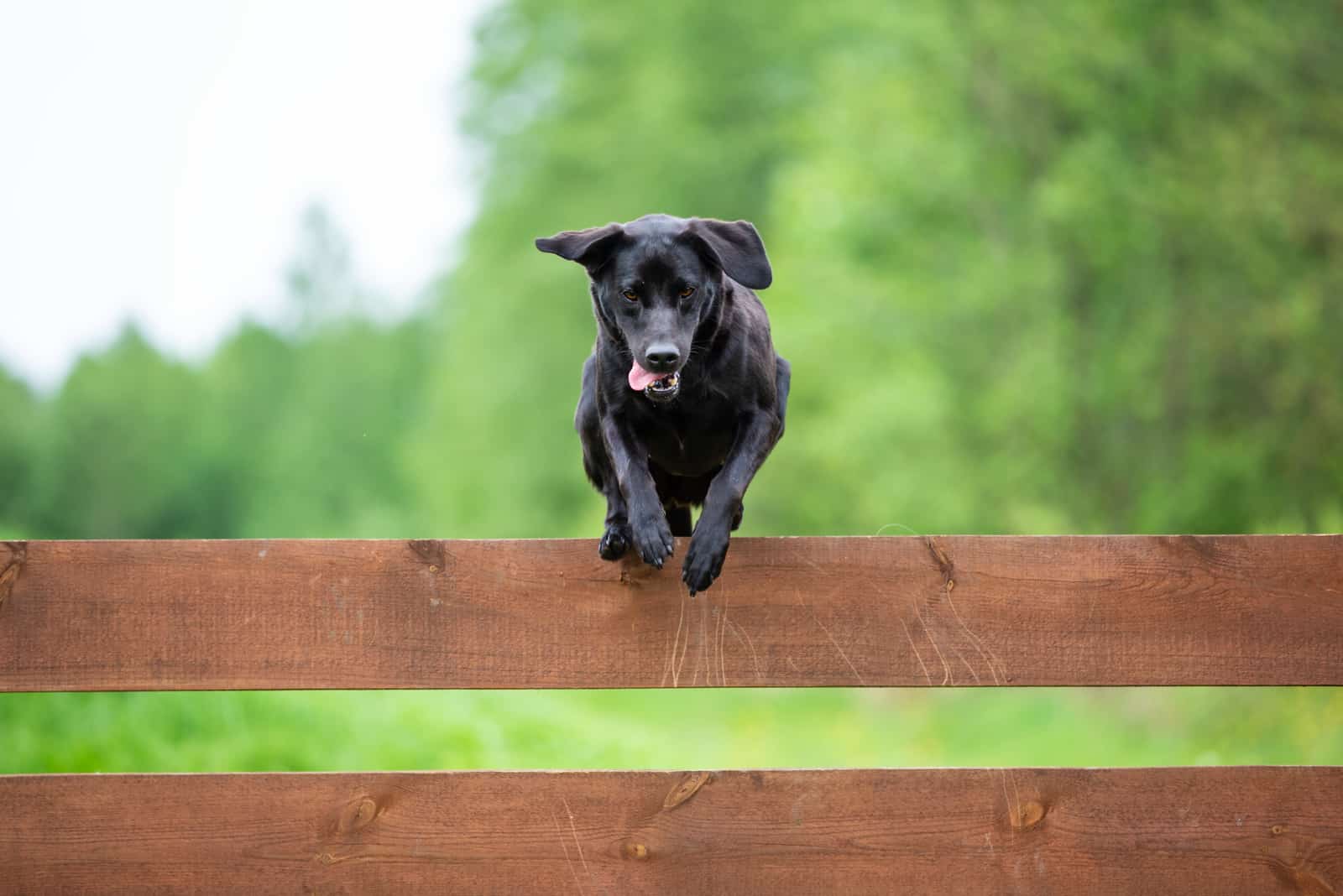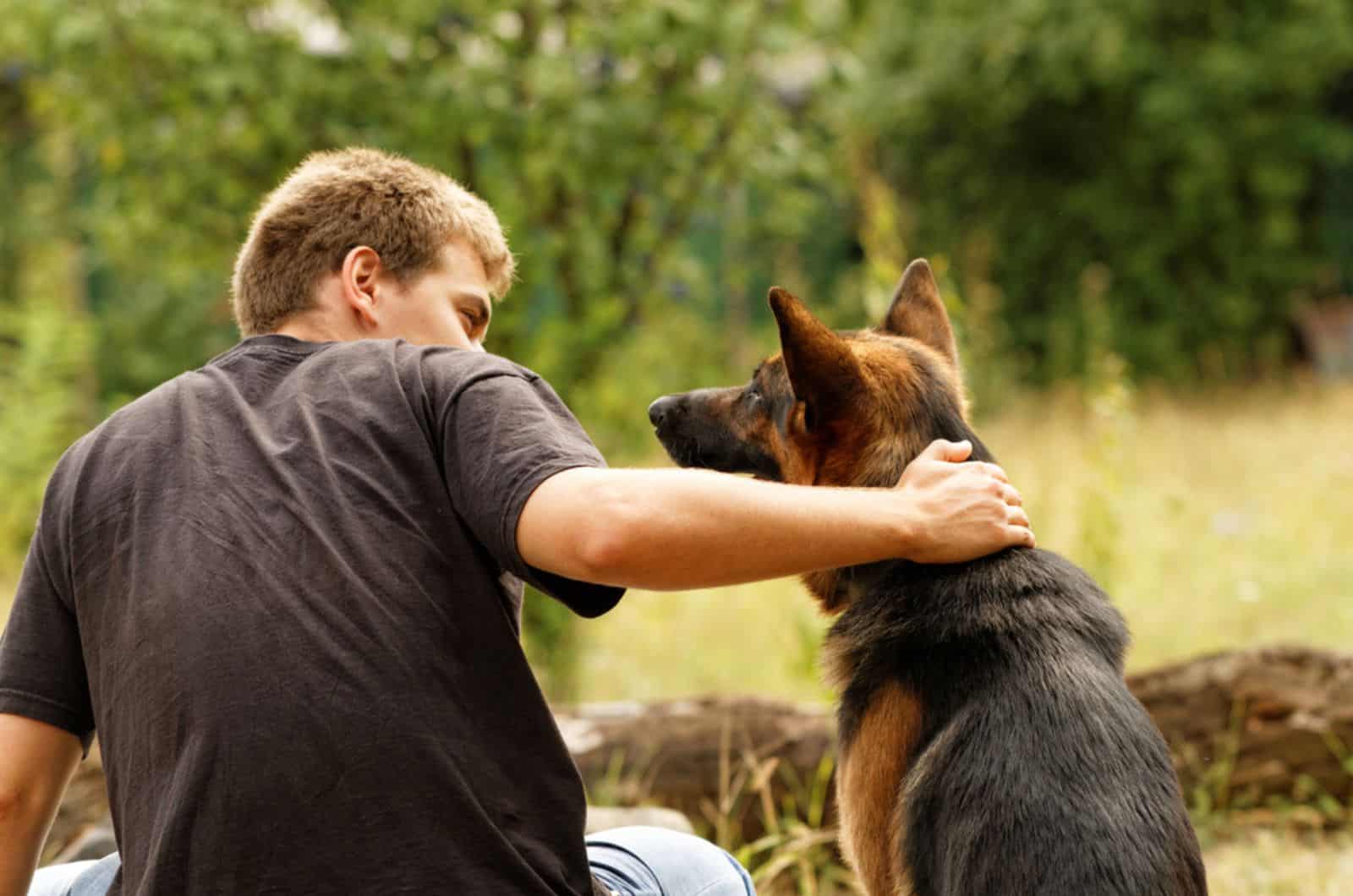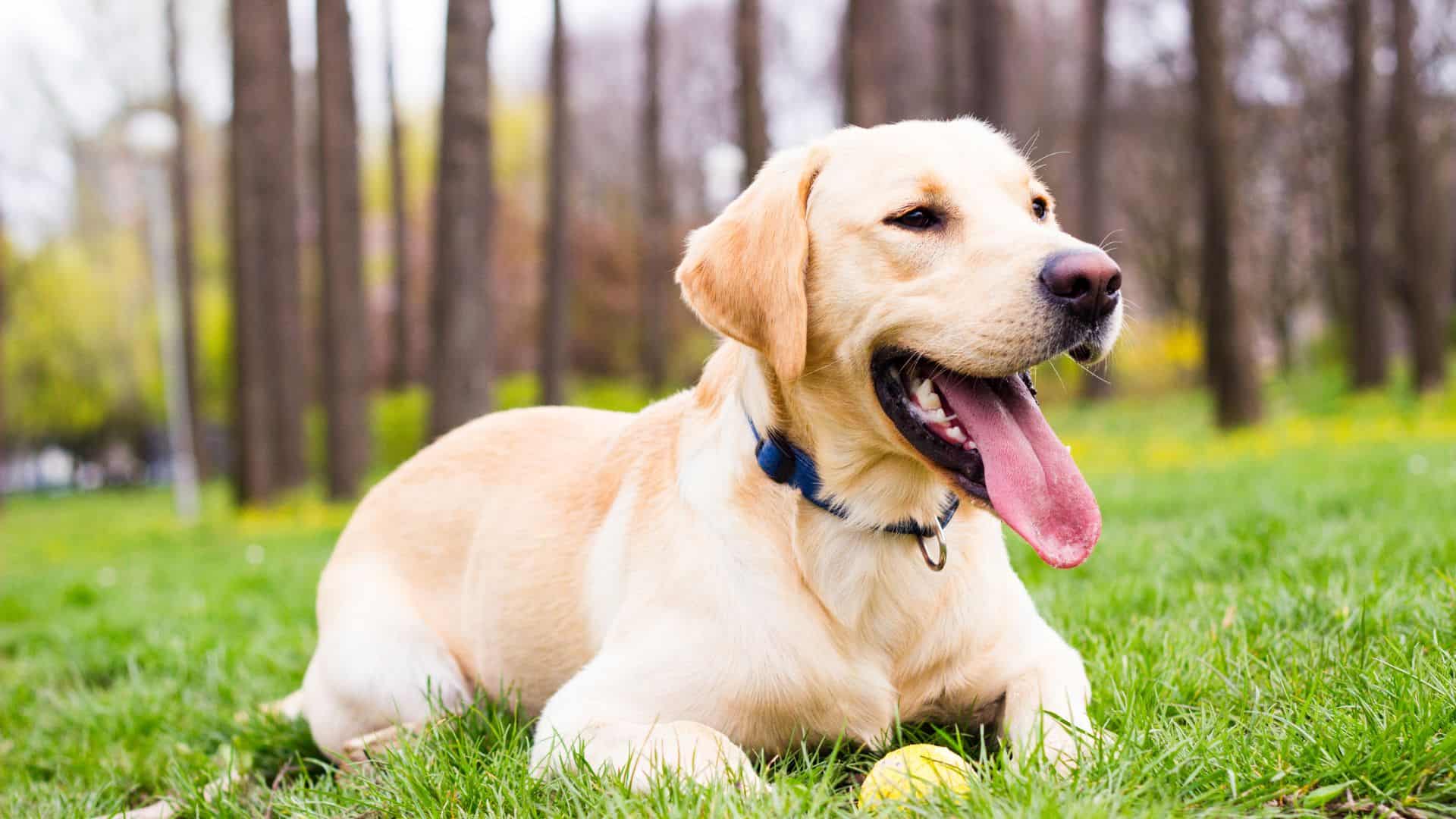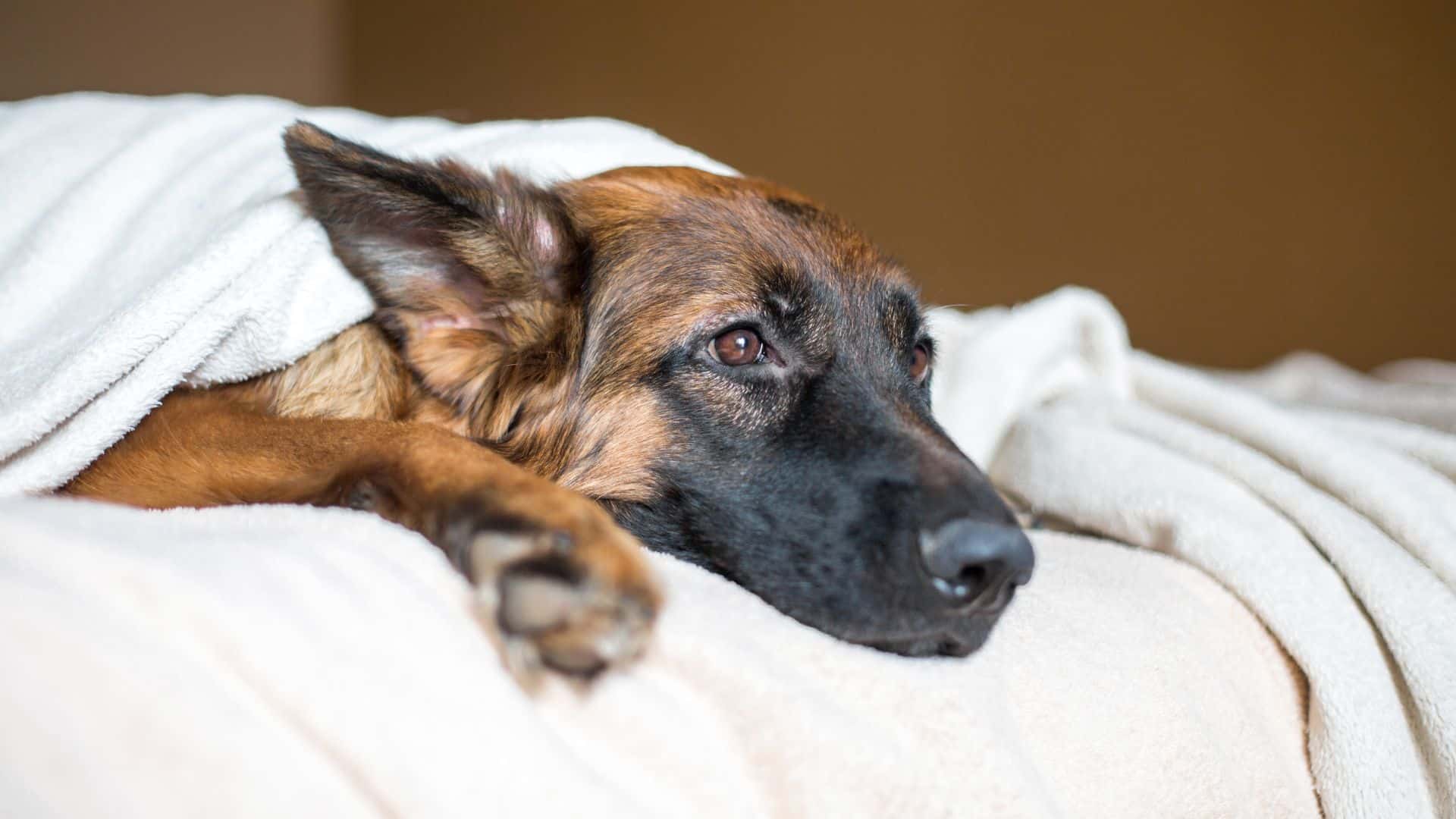Pet dogs that become service canines are true examples, which show how strong, intelligent, and loving our furry buddies really are.
It might sound weird that your furry cuddler has the potential to become an excellent service dog, but there are ways through which you can turn your own pooch into a helper rather than wait for years to get one.
Following The Footsteps Of Windigo, A Home-Trained Service Dog
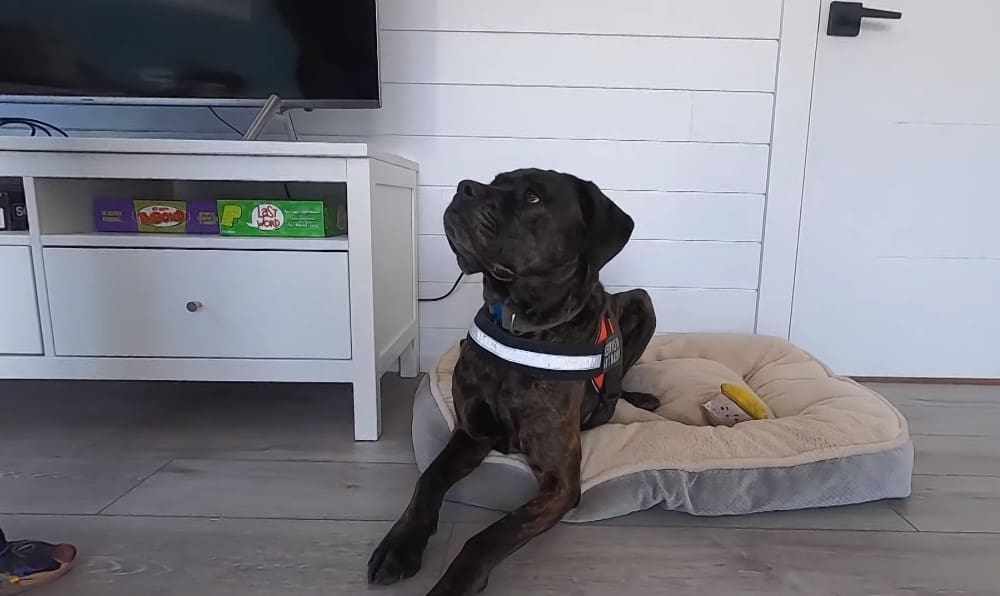
Beth Pratt, from Canada, has been a dog enthusiast for years, which is why she got Windigo in the first place. However, she couldn’t imagine that her beloved pet would become her service canine until she had no other choice.
Beth lives with a neurological condition that makes her lose balance and strength, which is why she decided to apply for a service canine. Unfortunately, Beth got rejected, as she told the CBC:
“I sent in the form, but then I got a letter back saying they weren’t taking applications and the waiting list was five years.”
Beth still didn’t consider training her pet to become a service dog, but was looking for an option to buy one. But, the price was a major obstacle for her, as service canines cost up to 30 thousand dollars.
Fast forward, Beth finally decided to take the chances with her beloved Windigo, which proved to be an excellent decision.
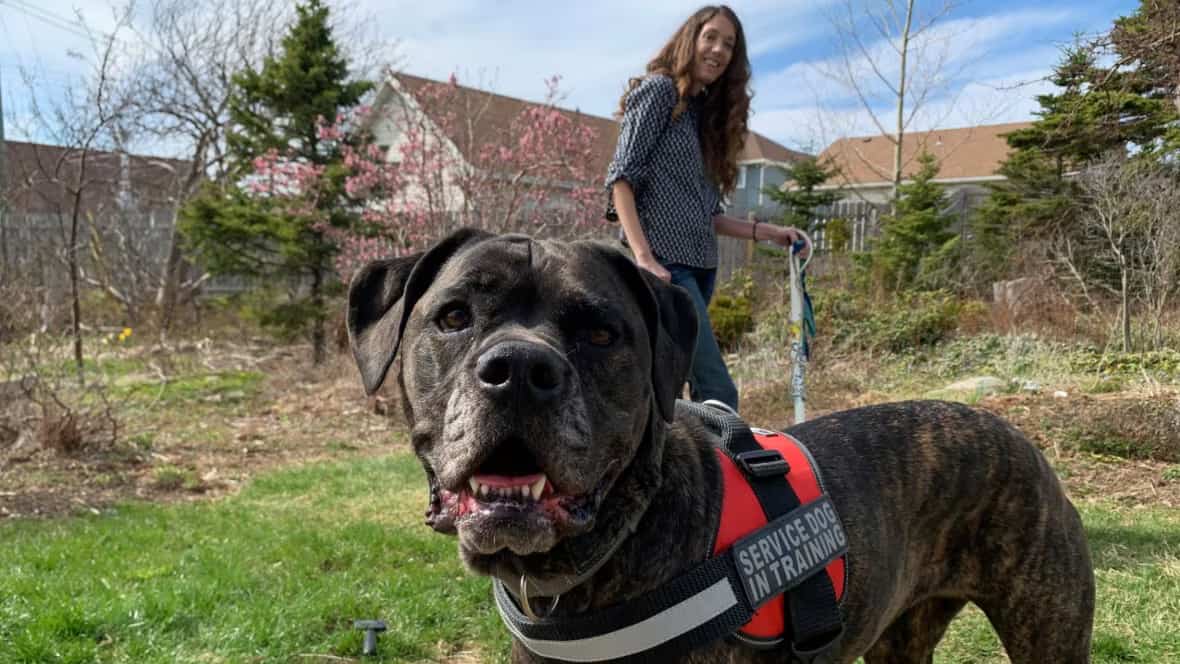
With the help of a professional dog trainer who mastered training of service dogs, she was able to train her pet into becoming a service dog.
Now, Windigo is not just an obedient furry buddy, but a great service canine that helps his owner open doors, get her pills, keep her safe during walks, and pick up almost anything she needs, from the phone to her purse.
How To Train Your Own Windigo
Believe it or not, with a lot of work and a few tips I shared below, you can have your own Windigo.
Your furry buddy might have the potential to become a great service companion with the right guidance and proper training. So, why not give it a try?
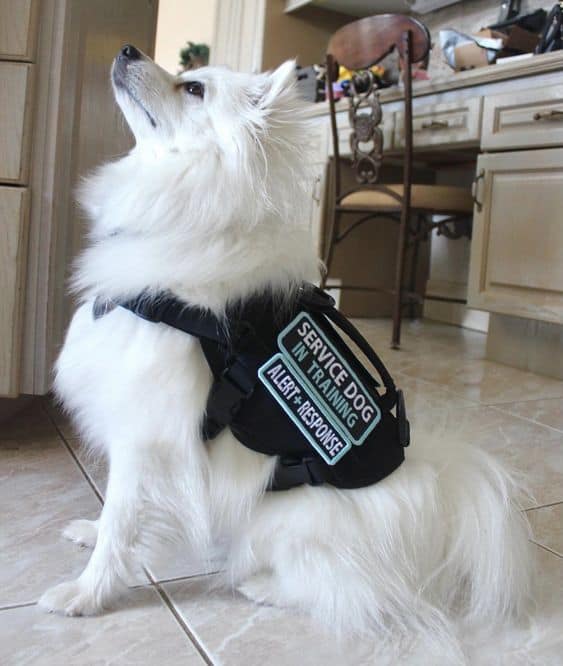
#1 Choose Your Doggie Wisely
According to my knowledge and experience with mixed-breed puppies, Windigo seems to be a crossbreed of Cane Corso and Bullmastiff.
This type of doggie is a good choice for a service canine because of the loyalty, obedience, and affection it shows for its owners, but it requires a lot of work as this crossbreed might not be so friendly towards strangers.
Training a service dog is no ride in the park. It is a long-term process that depends on several factors, including the size, temperament, age, and intelligence of the dog. [1] That is why it’s important to find a dog that will be up to the task.
According to the Service Dog Training School International, these dog breeds make the best service canines:
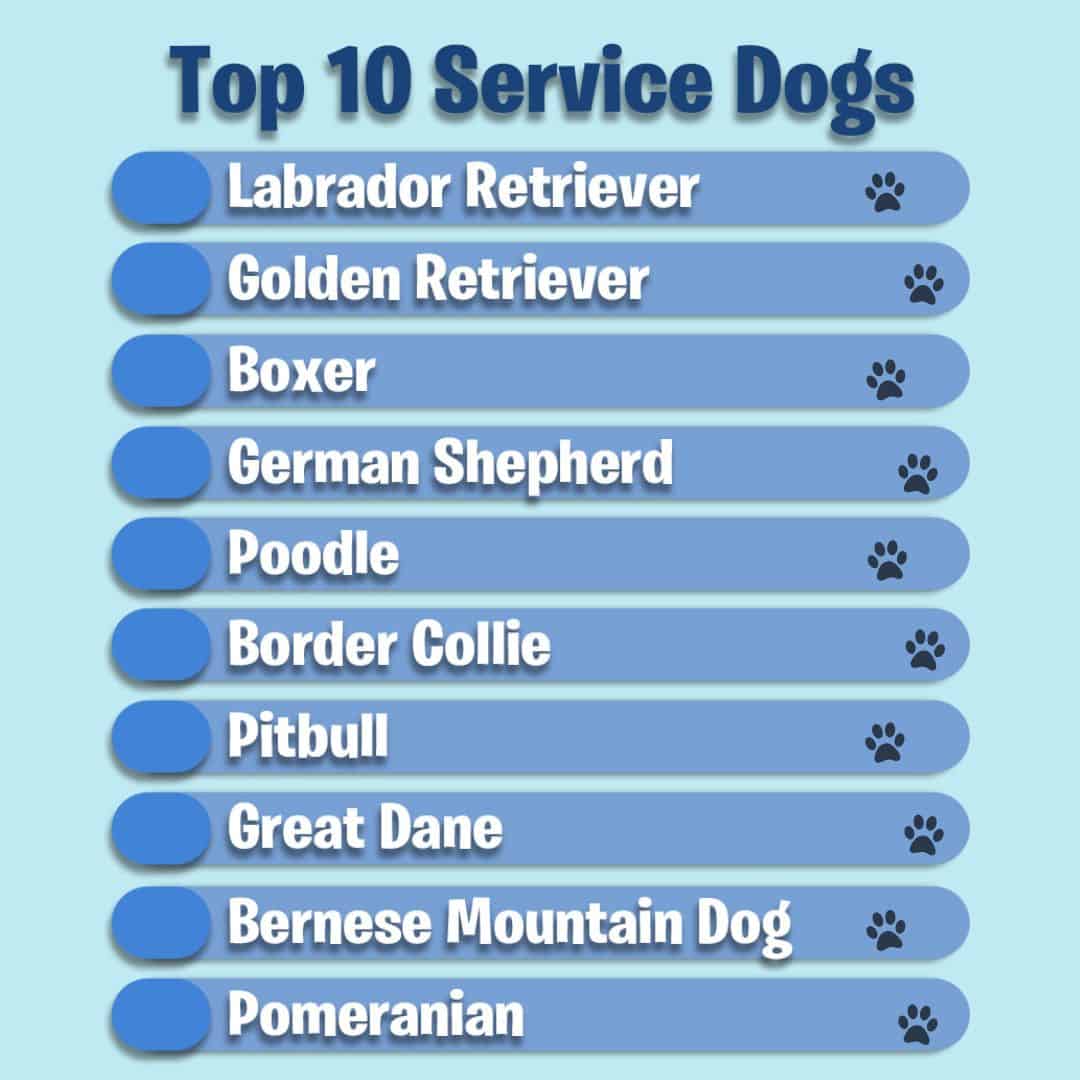
Of course, this doesn’t mean that the breeds from the graph are the only ones worth training, but it does point out that you should do thorough research before getting a dog for this purpose.
Unfortunately, rescue or shelter canines can rarely become good service dogs because they can’t stay neutral around people by the words of canine behavior specialist, Robert Cabral. He gave a clear explanation on this issue in this video:
#2 Socialize The Puppy To Ignore
Considering that Windigo isn’t aloof towards strangers as his parent breeds usually are, it seems that Beth did an amazing job regarding the socialization of her dog.
However, I’m not talking here about socialization in terms of direct and physical interaction with people and other animals. [2]
Service dogs should be trained to feel comfortable around other people than their owners. However, that doesn’t mean you should force your doggo to interact with strangers if it’s not up to it.
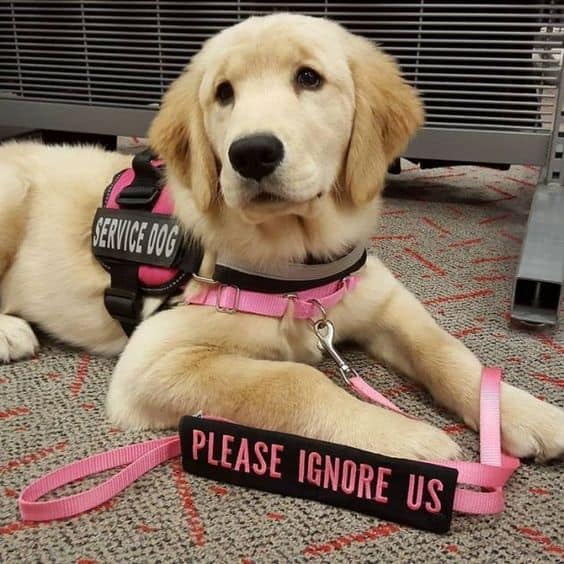
Direct interaction with people from your working or living environment can actually become a distraction that will not allow them to perform the tasks they’re trained for. [2]
And, that’s why you need to set boundaries.
Keeping Strangers At A Friendly Distance
When it comes to service dogs, they need to learn how to behave calmly and friendly, but also be ignorant of the environment.
I bet this sounds a bit confusing, but it actually makes perfect sense, as proven in this video from My Service Dog and Me.
If a stranger tries to make contact with your service pup in training, the best thing to do is politely ask them not to. This way, you’re not allowing them to distract your pup that should be focused on his task.
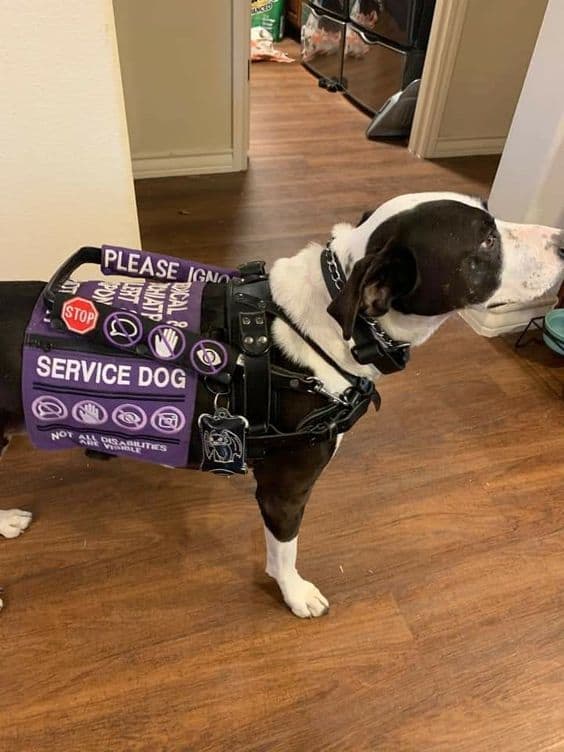
If, on the other hand, your pup seems confident enough to greet a stranger, you can let him do so, but only after the dog completes a task (so the greeting comes as a reward).
This way, your service canine will always be aware of his duties, and will have his focus on you.
Essentially, it’s all about balance. Service canines should be trained to remain calm and friendly around people, but that doesn’t have to involve physical contact.
#3 Set The Limits With Leash Training
According to the Americans With Disabilities Act (ADA), every service canine is required to have either a leash or a dog harness unless it prevents him from completing his tasks. [3]
However, you shouldn’t leash train your service doggo just because the law says so, but because it will benefit you.
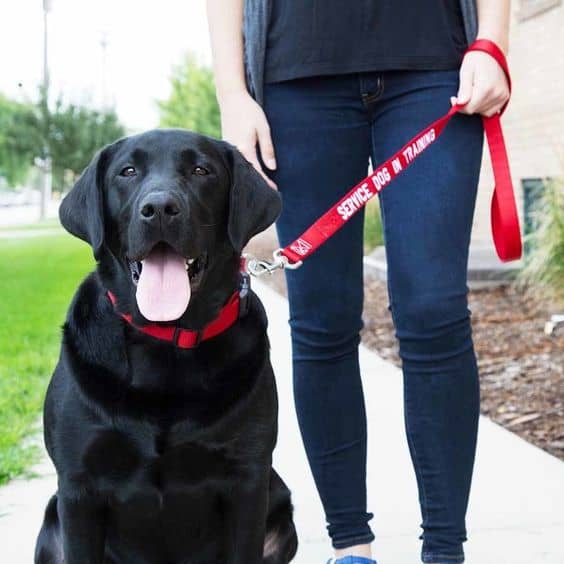
If you leash train a dog you want to become a service buddy, you will teach him boundaries in time.
Remember, although your pup loves to spend time playing in the park or running around, its primary task is to focus on you and be at your service whenever you need him.
The crucial point of leash training is to remain calm and positive as a trainer, so that your dog doesn’t consider the leash a bad thing, but a sign that it’s time to do his work and help his owner.
#4 Keep The Eye Contact On Point

Maintaining eye contact with your service canine is everything. This is the best way to know that your pup is concentrated on you, which is essentially his main task while working.
I have to admit that this is the trickiest part of training, as dogs (especially those that aren’t quite used to you yet) might find eye contact threatening, as Stephanie Gibeault, a certified dog trainer, puts it.
So, to prevent the dog from acting aggressively once you make eye contact, you need to build trust by showing your pup that nothing bad will happen when the two of you make eye contact.
The best way to do this is to put the dog in a sitting position and wait until he looks directly at you. After you make eye contact, make a cue (a sound or a word), and reward the dog, like in this video.
Once your dog feels fully comfortable looking at you, you can move on with a more advanced part of the training – keeping your dog focused on you in a distracting environment.

The best way to do this is to ask a friend or a family member for help. This person can serve as a distraction while you’re trying to keep the dog’s attention on you. Every time your pup is responsive, you can reward him with a treat.
This way, your service dog in training will understand the importance of keeping his focus on his owner regardless of distractions from the environment.
#5 Train The Pup To Function Without A Leash
As you can see from the video about Beth and Windigo, he is completely comfortable being outdoors with his owner without a leash, which is more or less the ultimate goal of a service dog owner.
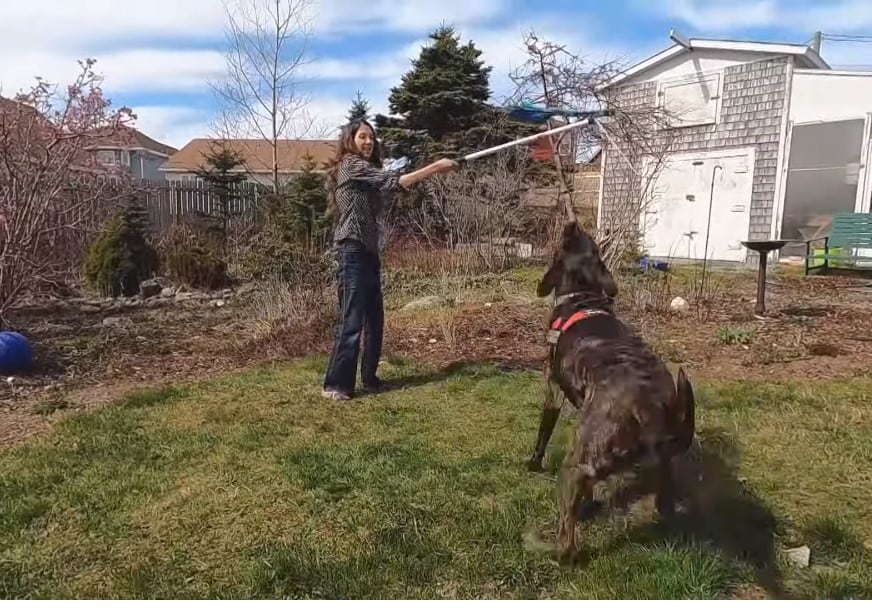
Although the ADA is quite strict with service dogs having their leashes and harnesses on while outside, there might be certain situations where it will be more practical to have your canine without a leash.
However, in order to do so, you need to be 100% sure that your dog is ready to be put off leash, and that he will be equally obedient and responsive as when he is on leash.
If your pup has already successfully passed all of the steps mentioned above, you won’t have much of a problem keeping him off leash when needed.
Still, I’d recommend you to experiment in a controlled environment first and repeat commands until you’re confident that your canine will be completely focused and obedient outdoors without a leash on.
#6 Make Your Service Doggo The Master Of His Field
Now that your service dog is already a master of attentiveness and obedience, it’s time to specialize him in specific fields:
• Hearing dogs
• Mobility assistance service canines
• Allergy detection dogs
• Diabetic alert service dogs
• Seizure alert service canines
• Medical service dogs
• Psychiatric service canines
• Autism support service dogs
• Guide canines
Each of these fields requires the owner to teach their service dog a certain set of commands. If you don’t find yourself confident enough to train your doggie by yourself, you can always consult with a professional dog trainer or a dog behavior specialist.

Final Word
If you have ever asked yourself: “How do I train my dog to be a service dog?”, I hope you found the right answer through this article.
If Beth managed to train her pet, I’m sure you can do it, too. However, don’t be harsh on yourself if things don’t always go as planned. Training a dog to become a service canine is a long-term process that requires lots of patience and positive energy.
Even if you don’t succeed, don’t worry – you can always look for help from a professional trainer or a dog specialist.
If you want to know how Beth did it, here is her video!
READ MORE:
Stupidity Level 9,999: People With FAKE Service Dogs
References:
1. Service Dog Registration Of America. (January 11, 2023). “How to Train Your Own Service Dog Like a Pro: Expert’s Guide.” Service Dog Registration Of America Website.
2. American Veterinary Medical Association. “Socialization of dogs and cats.” Retrieved March 17, 2023, from https://www.avma.org/resources-tools/animal-health-and-welfare/socialization-dogs-and-cats
3. Paws Of War. “The Rule for Service Dogs: Don’t Touch or Distract Them.” Retrieved March 17, 2023, from https://pawsofwar.org/service-dog-etiquette
4. First Responders Foundation. “Does My Service Dog Have To Be On A Leash?” Retrieved March 17, 2023, from https://firstrespondersfoundation.org/bit_faq/does-my-service-dog-have-to-be-on-a-leash/

